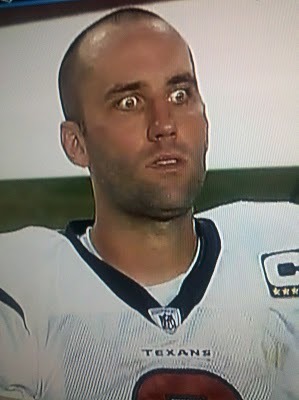CloakNNNdagger
Hall of Fame
NFL: 3 in 10 ex-players face Alzheimer's, dementia
I believe that this is still an significant understatement of the number of players facing this fate.
By MARYCLAIRE DALE
- Sep. 12, 2014 4:50 PM EDT
PHILADELPHIA (AP) - The NFL estimates that nearly three in 10 former players will develop debilitating brain conditions, and that they will be stricken earlier and at least twice as often as the general population.
The disclosure Friday comes in separate actuarial data the league and players' lawyers released as part of their proposed $765 million settlement of thousands of concussion lawsuits.
Both the league and lead players' lawyers expect about 6,000 of the 19,400 retired players, or 28 percent, to develop Alzheimer's disease or at least moderate dementia. Dozens more will be diagnosed with Lou Gehrig's or Parkinson's disease during their lives, according to the data.
The reports were prepared for Senior U.S. District Judge Anita B. Brody, who is presiding over the class-action lawsuit in Philadelphia that accuses the NFL of hiding information that linked concussions to brain injuries.
The NFL report said the ex-players' diagnosis rates would be "materially higher than those expected in the general population" and would come at "notably younger ages."
The proposed settlement includes $675 million for player awards, $75 million for baseline assessments, $10 million for research and $5 million for public notice. It wouldn't cover current players.
Both sides have insisted that $675 million would be enough to cover awards for 21,000 former players, given fund earnings estimated at 4.5 percent annually. Brody initially had concerns the money might run out, while critics complained the NFL's offering is a pittance given its $10 billion in annual revenues.
The NFL, in its report, said its estimates were "reasonable and conservative," and erred on the side of "overstating the number of players who will develop (illnesses)" to ensure the fund would be sufficient.
The league agreed this summer to remove the cap on its contributions, saying it would pay out more than $675 million if needed, and pay more over time if needed. Brody then granted preliminary approval of the plan and scheduled a fairness hearing on the proposed settlement for Nov. 19, when critics can challenge it.
"This report paints a startling picture of how prevalent neurocognitive diseases are among retired NFL players," lead player lawyers Christopher Seeger and Sol Weiss said in a statement.
Lawyers for some players have complained that the negotiations have been cloaked in secrecy, leaving them unsure of whether their clients should participate or opt out.
With an Oct. 14 deadline looming, "we still lack 'an informed understanding of the dynamics of the settlement discussions and negotiations.' Indeed, we have zippo understanding," lawyer Thomas A. Demetrio, who represents the family of Dave Duerson, wrote in a motion Thursday. Duerson, the popular Chicago Bears safety, committed suicide in 2011.
I believe that this is still an significant understatement of the number of players facing this fate.



